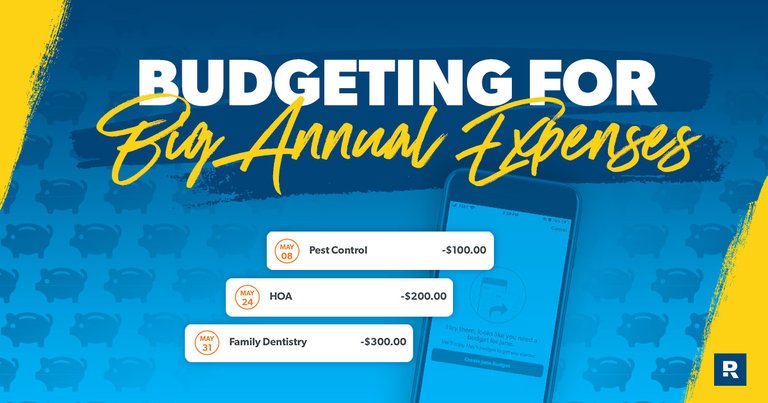Planning ahead is essential when it comes to large expenses. You should budget for unexpected car repairs and other unexpected costs, as well as planned large ones, such as a vacation. Putting aside money for these unexpected expenses will help you avoid a financial emergency, while also preparing you for upcoming large events. Here are some tips to help you budget for unexpected expenses. Listed below are three ways to budget for big expenses.
Saving for irregular expenses
The first step in setting up a savings plan for irregular expenses is to set aside a small amount each month for these types of expenses. It will take some time to accumulate a decent amount, so set a due date and decide how much you want to save every month. Once you have a buffer of a few months, you can use the money you have saved for big expenses to pay your irregular bills.
The second step in budgeting for irregular expenses is to think about your spending patterns over the past year. It is common to have a number of regular but irregular expenses, such as car payments, vet bills, subscriptions, etc. Make a list of all the bills that will occur throughout the year. You might be surprised to learn that many of these bills will occur only once a year or only when you need them. If you plan ahead, it will help you avoid surprises in the future.
Another helpful tip is to create a list of the irregular expenses they may encounter throughout the year. This will jog your memory and help you decide what needs to be included in the list. These lists aren't comprehensive; think of other irregular expenses that you may encounter. Those ideas can also be shared with others in the comments section of this article. Saving for irregular expenses is an essential step to creating a savings plan for the future.
Another important step in budgeting for irregular expenses is to determine your income. Some months may be better than others, but the law of averages can be your friend. You should aim to live on average income every month. To do this, divide your yearly income by twelve and make that your average monthly salary. You can then use that figure to calculate your savings plan. In addition to that, you should also take into consideration your variable expenses, such as insurance coverage.
The key to saving for irregular expenses is to understand what the expenses are and how long they will take. For example, you might want to start saving $50 a month for an unexpected expense. That way, you won't be spending it on other categories and will get closer to your goal. And once you have an idea of how long it will take you to accumulate the money for college expenses, you can make a practical plan to save for this large expense.
Calculating your budgeting needs in advance
When it comes to planning your monthly expenses, it can help to have an idea of what you can afford. You can create as many categories as you want, but be sure to group recurring monthly charges together. You may want to break discretionary spending into more categories. These are your expenses that you can control and set aside more money for each month. Listed below are a few tips to help you plan your budget.
Creating a budget requires some effort. First, calculate your expenses and create a wish list of things you'd like to have. These could include things such as new staff members, equipment, and supplies. You should also factor in indulgent spending. To make your list more accurate, look at recent bank statements. This will give you a better idea of how much money you're likely to spend on each category.
Putting money into a separate account for emergencies
Saving for an emergency can be an effective way to avoid debt or use your credit card. You should set aside a certain amount of money every month for emergencies, but make sure you also make room for other sources of money in case of an emergency. For instance, if you are planning on taking a trip or buying new clothes, put some money aside for these kinds of purchases. Many banks have sub-accounts for specific financial purposes, making it easy to save for those unexpected events. Having this money can be the difference between a short-term financial storm and sinking deep into debt.
Creating a separate account for emergencies is important because it helps you monitor your savings. An emergency fund can be helpful for unexpected expenses, including a dentist's visit, unexpected car repairs, or a membership to a tennis club. If you have a good emergency fund, the stress will be lessened and the expense will feel less like an affliction. However, emergency funds can also be useful when you're budgeting for large expenses.
Setting up an emergency fund can be as simple as saving 50 cents a day. That can quickly accumulate to several hundred dollars, which is roughly the equivalent of six months' worth of expenses. However, keep in mind that every unexpected expense will not necessarily be an emergency. You should set guidelines for your emergency fund and stay consistent with them. Remember that you don't have to save the money for big expenses every month. You can use the emergency fund to pay for unexpected medical bills not covered by your health insurance.
If you're already in debt, the best solution is to start paying it off as quickly as possible. If you have student loans, credit cards, or other debt, it's better to focus on resolving the problem than saving money for an emergency. In that case, it won't make any sense to save for future financial problems when you have a pressing one right now.
Posted Using LeoFinance Beta
